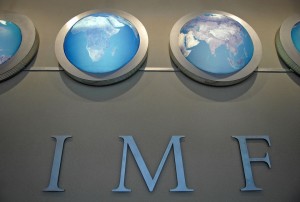Europe is trying to maintain its international rank and power not because of its latest successes, but because of tradition. Here is the idea emerging with the recent arrest of IMF Managing Director Dominique Strauss-Khan (also called DSK) concerning the appointment of a new IMF chief. The theme of this blog is not to discuss the possible next candidate at the head of the IMF, as my co-blogger Richard Basas already did, but to expose the agony of European politics.
With DSK’s trouble with the US justice, the big question is: who will lead the IMF in the post-DSK era? Historically, the IMF leadership has belonged to the Europeans and the World Bank to the Americans. However, the Bretton Woods institutions, established in 1944, are an illustration of Cold War politics led by the US and Western Europe. Even though the Europeans hold 30% of the votes at the IMF based on their contribution, the world in 2011 has changed and new powers have emerged from developing regions such as Asia (China and India), Latin America (Brazil and Argentina), and Africa (South Africa).
 The IMF came into formal existence in 1945 with the purpose of establishing a framework for international economic cooperation, has found its second birth in the 2007 financial crisis and its latest chief, DSK. Since the collapse of world financial platform in 2007, the IMF was able to seize this axiomatic moment as a way to change its image embodied within its ‘straightjackets’ policies into an institution central in order to restore the stability of states and markets.
The IMF came into formal existence in 1945 with the purpose of establishing a framework for international economic cooperation, has found its second birth in the 2007 financial crisis and its latest chief, DSK. Since the collapse of world financial platform in 2007, the IMF was able to seize this axiomatic moment as a way to change its image embodied within its ‘straightjackets’ policies into an institution central in order to restore the stability of states and markets.
With the most recent crises in Europe, the IMF has been one of the main players involved in order to provide financial assistance to Greece, Portugal, and Ireland. The IMF, member of the Troika – ECB and EC –, in the case of the EU crisis, is currently working on the design of the Greek loan, and involved in the case of Portugal. To sum up, the IMF has a significant role to play for the safeguard of the Eurozone, and ultimately the European integration project.
European leaders have called and lobbied for another European at the head of the IMF. For example, Belgium Prime Minister Didier Reynders has argued that the Europeans should not lose the seat of the IMF because they need it more than ever. He declared that “It would be preferable if we continued to hold these posts in the future.” European leaders, in their public relations functions, have argued that Europe holds many competent candidates for the job. German Chancellor, Angela Merkel, has declared that “We know that in the mid-term developing countries have a right to the post of IMF chief and the post of World Bank chief. I think that in the current situation, when we have a lot of discussions about the euro, that Europe has good candidates to offer.”
These statements and attitudes from European leaders are extremely contradictory with the European pre-crisis message of broader equality and power sharing within multilateral institutions. Will tradition and privilege rule over broader representation? Or will the Europeans keep their promises by abandoning a system based on heritage/tradition for a more transparent approach of representation in international institutions? Since the end of the Cold War, the question of ‘fairer’ representation within multilateral institutions, such as the UN with its Security Council, the World Bank, the IMF, the G8 becoming G20, has been major debate between the countries of the Global North and Global South. The problem today is that the main dossier for the IMF is in Europe. As it has been argued, the next Managing Director should know extremely well the EU and the euro, and ultimately should be in position to defend the European interests. But as claimed by Sean O’Gardy, “with the exception of Germany, and, maybe, Japan, it is the West that is virtually bankrupt. And it is now the fast-growing economies of Asia and Latin America that are bankrolling the West. Even the United States, which still calls so many of the shots at the IMF, is effectively funded by China. And yet, China has fewer votes at the IMF than the UK.”
In French one would say, L’Europe va mal! The fact that European leaders are calling for maintaining a key international post based on two reasons: first, heritage/tradition; second, Eurozone crisis. Such argument does not match with the evolution of the world, as one could argue that Thailand, Mexico, or even Argentina would have loved to hold the leadership of the IMF during their respective time of crisis. The only factor that has not evolved overtime is the role of power politics.
The EU and Europe are facing political, financial, economic, leadership, cultural, and social crises with no end in sight. A wave of xenophobia and extreme right wing policies are flooding across the European continent bringing only tensions without addressing the root causes. In this climax, holding the head of the IMF will not be enough in order to maintain Europe competitive against emerging markets.